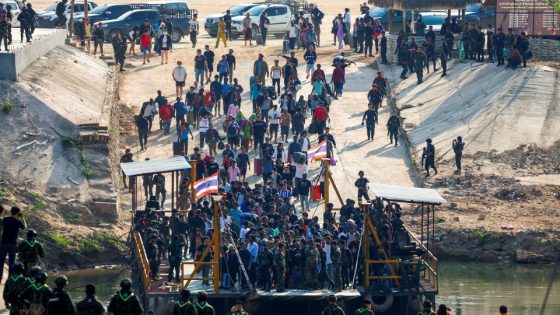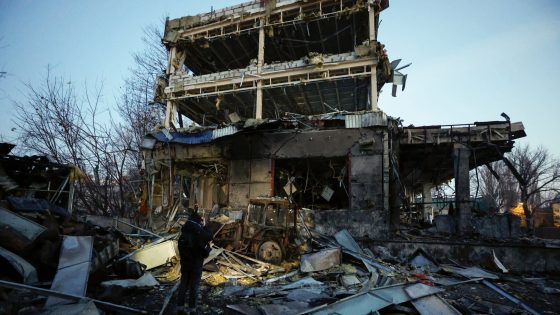On February 14, 2025, Thailand’s army reported the repatriation of 260 human trafficking victims from Myanmar, with over half being Ethiopian nationals. This significant operation aligns with increased efforts to combat human trafficking and illegal online operations along the Thai-Myanmar border.
- Thailand repatriates 260 human trafficking victims
- Majority of victims are Ethiopian nationals
- Criminal gangs exploit illegal online operations
- Thai authorities intensify crackdown on scams
- Democratic Karen Buddhist Army aids in rescues
- Thailand cuts utilities to combat trafficking centers
The repatriation of these victims comes amid a broader crackdown on human trafficking networks that have been exploiting individuals for forced labor in illegal online scams. According to the United Nations, these criminal gangs have trafficked hundreds of thousands of people, generating billions of dollars annually. The Thai army confirmed that victims from 20 different nationalities were identified, with 138 being Ethiopian nationals.
In recent months, Thai authorities have intensified their efforts to dismantle these operations, particularly after a high-profile abduction case involving a Chinese actor in Thailand. Following this incident, which drew significant media attention, the Thai government took measures such as cutting electricity and internet access to areas in Myanmar known for hosting these illegal operations. This reflects growing concerns in Thailand regarding the impact of these scams on its tourism sector.
The Democratic Karen Buddhist Army, a rebel group in Myanmar, reported discovering the trafficking victims while searching for forced labor in its territory. The group stated that they are actively working to return the victims to their home countries, although the circumstances of how these individuals ended up in Myanmar remain unclear. The situation highlights the ongoing challenges in addressing human trafficking in the region.
This repatriation effort underscores the urgent need for continued international cooperation to combat human trafficking and protect vulnerable populations from exploitation.






























